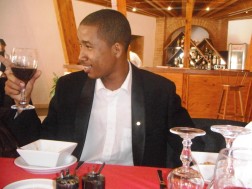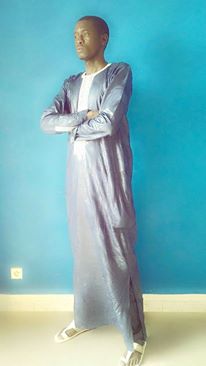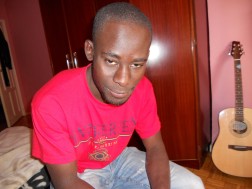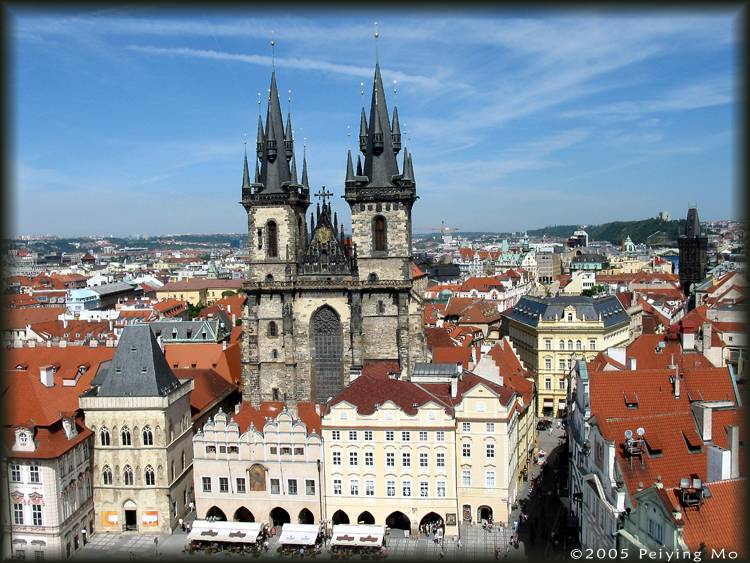(Blog post by Théo Chevalier)
Firefox OS is distributed across several countries and quickly expands throughout Africa. For many people, Firefox OS devices will be their first phone. This was an opportunity for Mozilla to provide phones in languages that are too often ignored or not well supported by other companies.
For many people, it will also be the first time they can get a phone that speaks their language. We are excited about it, localizers are excited about it, everyone is excited about it. With the recent addition of new African languages, Firefox OS 2.2 supports up to 97 languages – 40 of which are complete translation-wise!
From our own experience, we learned that building communities of localizers in Africa is extremely hard, and we failed many times. Even running on-ground events cannot guarantee people will be able to work together on the long term. We realized that connectivity is a major issue, though not the only one.
So during the summer we reached out to several people – most of them come from an Open Source background and have contributed already to other projects – explaining to them what we were trying to achieve with Firefox OS in Africa. We provided them communication channels and general support to start localization activities and get them up and running. We’ve been amazed to see communities growing up, especially around three languages: Bambara, Malagasy and Wolof.
We’re very proud of this for many reasons:
First of all for many African languages, Computer Science is very new in their culture – so the language itself is not yet adapted and a consensus must be reached for those terms. This can really slow down the translation, and launching new devices with partners means meeting strict deadlines.
Because of the lack of communities – and because of the deadlines – we sometimes have been forced to hire an agency to do the initial translation even though this was against our principles: all the translations at Mozilla are maintained by volunteers from around the globe. But we’re glad to see that now we’re back on track!
Connectivity in Africa is a major issue that can also slow down the process. Although the translations are mainly done online, our tools do offer features to work offline. However the work must be committed from time to time and team members must then coordinate. It’s not easy to take a decision or get in sync without connection when you’re not in the same city.
On the technical side, some languages may also require specific fonts in order to be displayed on the device — and given the nature of the project, the fonts must be redistributable and compatible with the Mozilla Public License 2.0. Sometimes, the glyphs don’t even exist, so we have to design them for the font used in Firefox OS. This involves Mozilla legal and User eXperience teams.
Another aspect to take into account in order to ship a new language is a dictionary. To provide features like auto-completion or auto-correct, Firefox OS must have a list of common words used in the user’s language — we call it corpus. For some African languages, it’s a real challenge to gather such corpus, as the language is sometimes mainly spoken and rarely written.
Finally, the biggest challenge comes when the language has very few speakers. It’s been very challenging to find volunteers willing to translate software in this case.
What’s been done
Those communities are new but already had achievements!
The Wolof team has worked with the MQM tool [https://blog.mozilla.org/l10n/2014/06/16/translation-quality-at-mozilla/ ] and have completed MQM sessions to assess the quality of the Firefox OS translation provided by the agency.
The Bambara and Malagasy teams have started localizing Firefox OS and are currently working with the agency to get the initial release complete in time.
What’s next?
All the teams will drive the localization of upcoming Firefox OS releases in their language! This is a great step forwards and very promising for the future of these languages in Africa.
Let’s now introduce some of the members:
I’m Mariot Tsitoara, 22 years old and currently I am a mobile and web developer.
I’m passionate about video games (especially Legend of Zelda), Sci-Fi or Epic books (A song of ice and fire) and robots construction!
I was involved in Ubuntu but now I’m focusing on Mozilla and my personal projects.
I’m motivated in localizing products in Malagasy because I believe that everyone should have access to technologies and especially the web. Languages should not be a barrier. I have an opportunity to do good and it’s my responsibility to help make the world and the web a better place.
I can plug in an USB drive on the first try!
I’m Imhotep Djehouty BAKHOUM, I’m Senegalese and I live in Ngor (a village where mainly Lebou are living). I am a developer specialized in mobile development (Android, Kivy Python, etc.), web and desktop development with Java, Python, etc. I am passionate about community mapping, and an active member of the Google Map Maker community, in which I was a leader for many years. I also got involved in the Google Translate community. I’m feeding off of African culture (Kamite), traveling, meetings and discoveries. I’m highly motivated to help translating in Wolof, because it’s our language, it’s beautiful, has a lot of potential, and must be developed in all areas, including the most specialized, to better serve us.
I’m Ibrahima Fall, I live in Bologna, Italy. I have a degree in automation engineering. I am specialized in development of automatic systems (PLC, micro-controllers) and web platform (Java). I work as a software developer. I am, since 2007, the main contributor and administrator of Wikipedia and wiktionary in Wolof. Author of a hundred Wolof articles on Wikipedia. I translated the interface Wikipedia and associated websites in Wolof. My main motivations are allowing Wolof speakers to access the knowledge they need in their own language and to make learning easier.
Shipping new languages in Africa is a long journey, but you can help us! Please help spread the word. If ever you know people speaking African languages (even if we already support this language in Firefox OS), get in touch with the Mozilla Localization Drivers team via e-mail [l10n-drivers@mozilla.org] or Twitter (@mozilla_l10n), and you might actually help us create a new community of volunteers who will change people’s lives!












Imhotep D. BAKHOUM wrote on